Graduate School
Graduate School
Graduate School Playlist: https://www.youtube.com/playlist?list=PLUykN3u3Z3NXLOeaUJmZHdEJ67KvpNzK2
Q&A sessions on Monday: https://sgp2020.sites.uu.nl/programme/
For several years now, SGP offers a colocated Graduate School on Geometry Processing that features several lectures in various topics in the field, held by world-class experts and lead researchers in the respective discipline.
The school is typically addressed to PhD students and other postgraduate students, with an interest in Geometry Processing, but offers introductory lectures suitable for many other practitioners and researchers. All participants to SGP 2020 have access to the SGP Graduate School. Videos for lectures from previous years are available here.
The school will be held on the weekend of 4 and 5 July 2020. The summer school slides will be available online from 1 July 2020, and Q&A sessions will be held on the 6 July 2020.
Chairs
Olga Diamanti (TU Berlin)
Emanuele Rodolà (Sapienza University of Rome)
Grad school Lectures
Computational Optimal Transport
Marco Cuturi (Google Brain, ENSAE)
This lecture will present recent developments in the field of computational optimal transport, with an emphasis on algorithms and applications, including some in imaging and graphics. I will present challenges (solving OT in high-dimensions, handling computations at scale) that have motivated some of these advances, and focus on the various solutions that have appeared recently in the literature, notably those that use projections, relaxation of constraints and regularization.
Fabrication-aware Design
Amit Bermano (Tel-Aviv University)
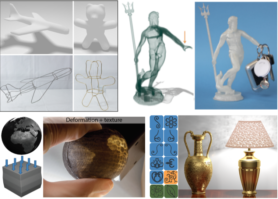
Additive manufacturing technologies create objects with previously undreamed-of combinations of functionality and physical properties. Their main advantage lies with allowing practically unlimited details without inducing additional manufacturing cost. However, with great capabilities come great challenges. In this talk, I present the common 3D printing technologies, and discuss how Computer Graphics and Geometry Processing data structures and algorithms are leveraged to develop new fabrication-aware design tools that are better suited for this paradigm shift.
The functional representation of 3D shapes and High-Frequencies
Simone Melzi (École Polytechnique, Sapienza University)
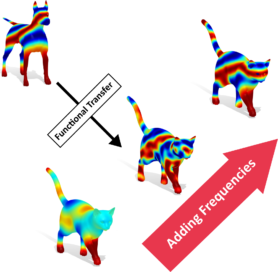
During the last decade, the functional representation of 3D shapes has been widely investigated and exploited in computer graphics and geometry processing. This representation provides an efficient computational method to represent 3D shapes and estimate and analyze correspondences between them. In this context, the functional maps framework has become a milestone in the computer graphics community. One of the main limitations of the original implementation is the poor characterization of high frequencies. This talk focuses on this characterization and the latest solutions to overcome this limitation. In this talk, we give an overview of the method and the motivations for the new approaches. We then discuss the theory and implementation of different recent solutions showing how the high frequencies can improve the quality of the representation of the shapes and the maps between them.
Deep Learning for Geometric Data
Niloy Mitra (University College London, Adobe Research)

In computer graphics, many traditional problems are now better handled by deep-learning based data-driven methods. In an increasing variety of problem settings, deep networks are state-of-the-art, beating dedicated hand-crafted methods by significant margins. After reviewing relevant background from regular imaging domain, in this tutorial we will discuss state-of-the-art in terms of geometry and topology synthesis in the context of point clouds, meshes, and implicit surfaces.
Discrete Curvatures
Christian Müller (TU Wien)
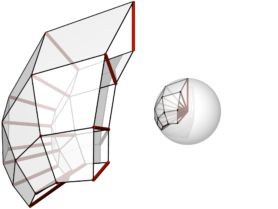
A key notion in differential geometry is the notion of curvature. We will study different discretizations of curvatures and analyze their properties. We will lay our focus on different incarnations of the well known Steiner formula, which measures the volume of offset surfaces in terms of curvatures. Furthermore, we will consider generalizations thereof and point to discrete curvature notions in other discrete settings.
PDE and Spectral Approaches to Geometry Processing
Justin Solomon (MIT)
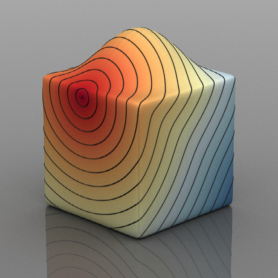
Many methods in geometry processing involve partial differential equations (PDEs) and associated spectral problems. Starting with the well-known Laplacian operator, we will explore the “operator-centric” approach to geometry processing. Beyond defining some popular operators and associated geometry processing algorithms, we will explore new frontiers in this area including volumetric shape analysis and geometric deep learning.
Geometric Computing
Mario Botsch (Bielefeld University)
Daniel Sieger (Coventor)
Andreas Fabri (GeometryFactory)
Sébastien Loriot (GeometryFactory)
Alec Jacobson (University of Toronto)
Daniele Panozzo (New York University)
Teseo Schneider (New York University)
Sebastian Koch (TU Berlin)
Keenan Crane (Carnegie Mellon University)
Nicholas Sharp (Carnegie Mellon University)
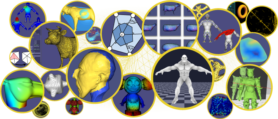
This extended session will focus on current, general-purpose geometry processing software libraries and tools. Five different computational frameworks will be covered, and each will be presented by the respective authors. The lectures will detail how each library was conceived, its particular advantages, the specific aims, the algorithmic needs, as well as the challenges that it addresses, providing examples that showcase particular capabilities and application scenarios. This exciting session is meant for both established researchers and beginners – an unmissable view on the Swiss army knives of the thriving geometry processing community!

